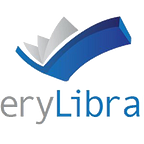Alarmed about fake news? The librarians can help!
Learning “media literacy” skills is key
By EveryLibrary Contributor Sarah Morris
On a chilly morning near the end of 2016, I met a friend for breakfast at a diner in Austin, Texas to talk about fake news. While this was not the start of some, admittedly strange, spy novel, it was the start of an educational project that’s still growing. As a librarian, I know it is just as important to teach kids how to look at news sources as it is to teach them to read. Librarians like me are focused on helping people of all ages become literate in a number of ways. But we are here in a particular way to help parents, educators, and their students know how to be literate about the media, news, and what they see online. With so much learning and entertainment happening online, it’s more important than ever
As a librarian and a former museum educator I’ve done work around digital and media literacy for years. There’s a lot of words, and multiple literacies, to describe the type of work librarians often do, but in a nutshell librarians often focus on empowering people with the skills they need to find, evaluate, use, create, and share information. And, as a librarian, I’ve grown increasingly alarmed at the news coming out about fake news and misinformation as well as hacks, and online security, or lack thereof, and propaganda, and filter bubbles, and on and on. Studies that started emerging in 2015 and 2016 didn’t exactly inspire confidence either. For instance, a 2016 Stanford study noted that most teens are unable to distinguish credible and noncredible information online. And a Tow Center study on how misinformation can spread so rapidly was as fascinating as it was scary.
Which brings me back to that diner in late 2016. The project that resulted from that morning conversation, and through a Mozilla Foundation grant, is called Mission:Information. Mission:Information is a curriculum kit aimed at building media and web literacy skills in teens to help them be savvier consumers, producers, and distributors of news and information. The plan is for this curriculum kit, which currently contains three open-source lessons for educators to use, to grow and expand it into a robust resource hub that can provide resources and activities for anyone who is interested and to provide particular support for educators (with a special emphasis on librarians) as they work to combat misinformation in various learning environments.
This curriculum kit also plans to take a broader look at misinformation, including content that focuses on news as well as junk science, related computer science issues, history, and civics education. I’m currently winding down a Mozilla Open Leaders Fellowship and new material will be appearing shortly around the role of algorithms in shaping our online experiences and around junk science. If you’ve ever been alarmed to learn that chocolate causes some bizarre disease, only to swing towards relief when learning that chocolate actually makes you immortal, check back for ways to recognize and combat junk science.
Librarians are at the core of the Mission:Information project in a lot of ways though; they are uniquely situated to help combat misinformation and related issues. Librarians are inherently interdisciplinary and their focus on things like media and information literacy skills make them naturally equipped to help people learn to recognize and deal with misinformation. As a profession, librarianship is one of the most trusted in America, according to a recent Pew survey, and librarians engage with learners and patrons ranging from 1 to 101.
As spaces, libraries provide free access to information and welcoming environments where people of all ages can learn and grow as information consumers, producers, and distributors. Libraries are absolutely vital as society at large works together to combat the effects of misinformation. I see my Mission:Information project as a way to support fellow librarians with resources to enhance the great work they do, and to provide the public with information that can help them better deal with misinformation in their daily lives.
You can check out the Mission:Information project and related work at the Mission:Information portal.
